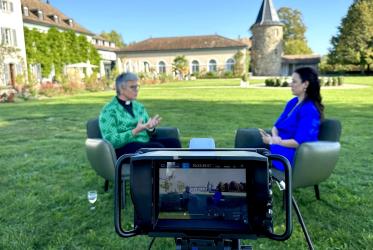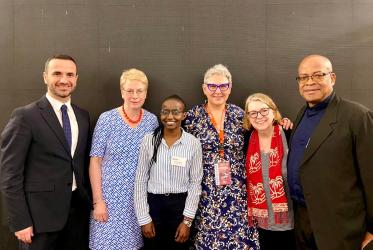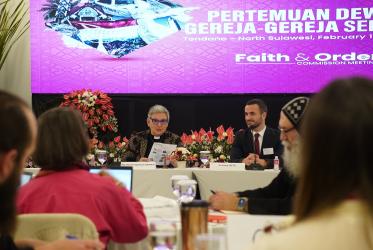Ecumenical and inter-religious dialogue in conversation
What is the relationship between ecumenical and inter-religious dialogue, what are their commonalities and what are their distinctive features? These were some of the questions being considered in a brief exploratory meeting organized jointly by the staff leadership of the WCC’s Commission on Faith and Order and its programme on inter-religious dialogue and cooperation 12-14 May, at the Ecumenical Institute, Bossey, Switzerland. The meeting gathered together a group of those responsible for ecumenical and/or inter-religious concerns in churches and other Christian bodies, along with those for whom this is a field of specialized study and research. This cooperation between these two WCC areas is an example of the new transversal way of working which the WCC has adopted after the Busan Assembly in 2013.
The meeting listened to discussion of the different geographical and practical contexts in which questions of ecumenical/inter-religious relationships arose. Sometimes groups or individuals found themselves with responsibility for both ecumenical and inter-religious concerns, and would welcome assistance and guidance about the different goals and methods appropriate to each. On other occasions, expertise in one field could lead to a devaluing of the insights and importance of the other. The meeting also heard that the contexts of the Middle East, Asia, Africa, Europe and North America were each quite varied and different from one another.
After a creative and stimulating conversation, the meeting agreed to work towards the production of practical guidelines for the churches. The meeting believe that the issues they are seeking to address are vital for those wanting to wrestle with the urgency of witnessing to the gospel in current ecumenical and multi-religious contexts.




